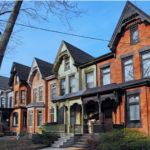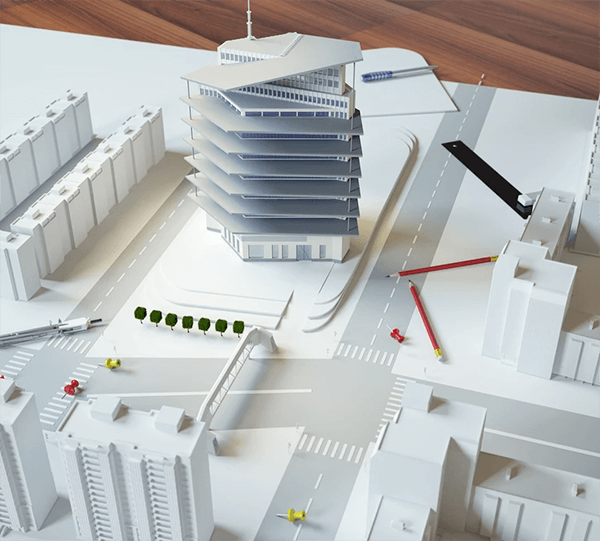Tags: Home buyers, Real estate,
Buying a house is one of the biggest purchases that you will ever make. Most of us will need to save for several years to afford the required downpayment, and it will be our largest monthly bill for the years that we are paying off the mortgage. As such, there can be a lot of emotion attached to this type of purchase.
As hard as it can often be, it is important to put your emotions aside and really look at the big picture with this purchase. You need to do your research and not rush into buying the first thing you fall in love with. Think about your needs now and think about what your needs may be in 3-8 years. Things like parking, number of rooms, yard size, storage, your neighbourhood, schools, and so many other factors can change soon after you buy so you need to make an educated decision that balances your current needs with the needs of your future.
Once you know what your current needs are and what your future needs may be, acting fast can be beneficial but not before you know exactly what you are after.
Here are some of the most common regrets that homebuyers have shortly after buying. Use these to help guide the decision making of your home purchase.
Bought a house that was too small or too big
Buying the right size home can be challenging. Do you buy for your future and get more rooms than you currently need? Or do you buy for the present and make a change down the road if your needs change?
Many people feel that finances will often make this decision for you but the reality is that if you can afford a one or two bedroom home in Toronto, you could opt for a three or four bedroom home outside of the city. So you have to make the decision for yourself.
Our advice? Don’t underestimate the number of bedrooms that you will need. If you’re a first-time buyer and do not currently have kids, ask yourself where you will stand in 3-5 years. Planning to have your kids bunk up in one room may work short-term but in the long run, they are going to need some of their own space.
Plan to live in your home for at least 5 years to help ensure that the value of your home increases enough to cover the costs involved in buying a new home.
While it is important to be realistic about your needs for the next 5 years you also don’t want to get carried away. Bigger is not always better. Don’t find yourself in a situation where you are carrying more home that you can handle. Sure, it would be nice to live in a mansion but that lifestyle is not for everyone. Having some financial flexibility with your mortgage and other expenses is important.
Not knowing enough about the house and its location
The location of your home is going to be a huge factor in whether you are happy with your purchase down the road – anywhere from 6 months to 5 years in the future.
A quiet suburb is right for some, while others need access to amenities within walking distance. It all depends on your current situation.
You may think that just because you don’t have kids, you don’t need to factor schools into your search criteria. Just like with deciding on the right size of house, you need to plan ahead on the location of your home as well. Even if you plan to move again when children come along, circumstances might not allow for it.
Not understanding the financial ins and outs
Buying a home is a massive financial expense. Mortgage payments, property tax, maintenance, and so much more. A lot of homebuyers don’t actually have a real grasp of what all of the expenses can actually be and go into the purchase somewhat blind. Last year we did a post explaining the additional costs involved with buying a home that outlines the expenses that everyone should know about before purchasing a home.
It’s not that the costs are not manageable, it’s just important to know about them ahead of time so that there are no surprises.
Not giving a bigger down payment
With the new(ish) mortgage rules in Ontario, making a 20% downpayment on a house is often your best bet to avoid the additional insurance fees that you will end up paying if you do not meet that threshold. Now, there are always situations that will not allow for this and it can still be in your best interest to buy, but as a general rule, making at least a 20% downpayment is always best.
You did not get the right kind of mortgage
The type of mortgage that you secure will largely impact your monthly mortgage payments and over time, choosing the right type of mortgage for your situation can help you save money.
As mentioned above, making a downpayment of at least 20% is always your best option. However, you can purchase a house in Ontario with as little as a 5% downpayment. In these cases you are subject to pay an insurance premium on the balance of your mortgage with a premium of 2.8-4% depending on your exact downpayment.
Regardless of your down payment there are still different types of mortgages that you can choose from that will impact your payments – you must pick either a fixed or a variable rate.
A fixed rate is usually more popular because your rate will stay the same over the term of the mortgage. For example, if you get a five-year fixed-rate mortgage with a rate of 3%, the interest rate will always stay the same during the entire five-year period. A fixed rate is ideal for someone who wants their rate and mortgage payment to remain unchanged – maybe someone with a fixed income.
The other option is a variable-rate mortgage which can change during the mortgage term. The rate is based on the lender’s prime rate plus or minus a certain percentage. For example, if the prime rate is 2.7% and the mortgage rate is prime minus 0.5 percentage points, the actual mortgage rate will be 2.2%.
You waived the inspection
With the frenzy that was and is the Toronto real estate market, many buyers have opted to pass on the home inspection to try and sweeten up their offer to the home seller. While this can be very attractive to sellers, it is always in the buyers best interest to have a home inspection done before closing on the home. Without the inspection the buyer could come across a number of issues, some larger than others, but all can and should be avoided.
Potential problems that can arise when passing on a home inspection include the following:
- The home might not be insurable
- Unpermitted work won’t be discovered
- You’ll have less legal contractual outs
- You won’t be alerted to real estate issues
- You’re giving up a handy negotiation tool
Final Thoughts
Learn from the advice and mistakes that other homebuyers have made before you. Do your research, use that to make an informed decision before buying, and work with a real estate agent to help ensure that all of your needs are met in a timely manner.











